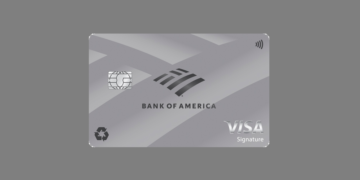Credit Cards with Rewards: How to Maximize Your Benefits and Minimize Fees

Maximizing the Benefits of Reward Credit Cards
Reward credit cards can serve as an excellent financial resource when used wisely, providing an array of perks that bolster your purchasing power. These cards are particularly attractive because they reward you not just for using credit, but for making purchases you would typically engage in, allowing for the potential of significant returns. However, to truly unlock their potential, one must navigate potential pitfalls and fees associated with these cards.
Consider the following key advantages of reward credit cards:
- Cash Back: One of the most straightforward benefits is the cash-back option, where you earn a percentage back on every purchase. For instance, a card offering 1.5% cash back can translate into substantial savings over the year, especially for those who spend regularly on groceries, gas, and utility bills. If you spend $1,000 a month, that’s $180 back annually!
- Travel Points: Many cards permit users to build travel points that can lead to free flights or hotel stays. With airlines like Delta and United offering partnerships with major credit card providers, savvy travelers can accumulate points quickly. For example, a card that offers 2x points on travel purchases translates to earning 2,000 points for a $1,000 flight, potentially leading to a free trip in the future.
- Discounts and Offers: Reward credit cards often come with exclusive discounts and access to promotions from partner retailers. This could range from cashback offers on specific brands to special sales events for cardholders, enhancing both the value and savings on your purchases.
While the benefits are enticing, understanding the *associated costs* remains crucial. Hidden fees can quickly erode any rewards earned, particularly if one is not careful. To fully capitalize on these advantages, consider the following strategies:
- Pay Your Balance: To sidestep interest charges that can negate any benefits, paying your balance in full each month is imperative. Not only does this maintain your credit score, but it prevents the accumulation of debt that can arise from high-interest rates.
- Choose the Right Card: Aligning your credit card choice with your spending patterns is vital. For instance, if you frequently dine out, a card that offers higher rewards for restaurant spending will generate more points compared to a standard rewards card.
- Be Mindful of Fees: It’s essential to stay vigilant regarding annual fees and foreign transaction charges, especially for cards that may appear appealing but have hidden costs. Some cards with high cash-back percentages can also charge steep annual fees, which can negate any financial benefits.
When adeptly managed, reward credit cards can transform routine expenditures into significant savings or even unforgettable travel experiences. By making informed decisions about card selection and spending habits, individuals can harness the true power of these financial tools. As we explore the intricate world of credit card rewards, remember that every purchase can be a step toward substantial rewards, provided one stays educated and vigilant about the intricacies involved.
Navigating the Landscape of Reward Credit Cards
In a world increasingly reliant on credit, knowing how to leverage reward credit cards for maximum benefit has become essential. With an array of options available, users can easily become overwhelmed. However, a strategic approach to selecting and utilizing these cards can turn everyday spending into significant rewards. Whether it’s a timely cash-back bonus or accruing travel points for a future getaway, understanding the ins and outs of these financial tools can lead to tremendous advantages.
As avid consumers explore reward credit cards, they should keep not just the benefits in mind but also how to best utilize them. Here are some critical features to consider when selecting a card:
- Sign-Up Bonuses: Many credit card companies entice new customers with generous sign-up bonuses. This can range from a lump sum of points to a considerable percentage of cash back on purchases made within the first few months of opening the account. For example, a card may offer a bonus of $200 after spending $1,000 in the first three months. This is an immediate reward that can significantly boost your upside.
- Tiered Rewards Structures: Some cards employ a tiered rewards structure that offers different percentages of rewards based on the category of purchase. For instance, you might earn 3% cash back on groceries, 2% on gas, and 1% on all other purchases. Understanding this structure can help you strategize your spending for optimal rewards, enabling you to funnel expenses into categories where you earn the most back.
- No Annual Fees: Although many reward cards come with annual fees, others offer great benefits with none attached. A card without an annual fee can be a smart choice for individuals who do not want to spend more than they earn in rewards. This simple choice can help in keeping more of your money in your pocket while still accruing benefits through your everyday spending.
Yet, as with any financial product, there are potential drawbacks and responsibilities that come with reward credit cards. To maximize rewards while minimizing costs, it’s important to actively manage your credit card usage. Consider the following strategies:
- Track Spending: Keeping an eye on your spending habits is crucial. Utilizing budgeting apps or maintaining a spreadsheet can provide insights into where your money goes, helping you adjust your habits if necessary. This way, you can align your spending with maximum rewards earnings.
- Understand the Terms and Conditions: Many cardholders overlook the fine print. Familiarizing yourself with the specific terms, such as expiration dates on points or any additional perks like travel insurance, can add significant value to your card usage.
- Set Reminders for Payments: Making timely payments is vital not only to avoid fees but also to maintain a healthy credit score. Setting up mobile alerts or calendar reminders can help ensure you never miss a payment, keeping interest at bay.
In conclusion, reward credit cards are more than just a means of borrowing; they are tools that can enhance your financial life when used judiciously. By focusing on sign-up bonuses, tiered reward systems, and monitoring spending, individuals can truly capitalize on the potential benefits while keeping fees at bay. The journey to maximizing your rewards begins with informed choices and proactive management, setting the stage for both short-term rewards and long-term financial health.
Strategizing Your Reward Credit Card Usage
With the right approach, maximizing rewards from credit cards can feel less like a challenge and more like a rewarding game. Beyond selecting the right card, how you utilize your credit card can significantly impact your overall gains. Here are additional strategies to consider that can elevate your experience while keeping fees in check.
- Utilize Points Wisely: Accumulating points or cash-back is just the beginning; knowing how and when to use these rewards is equally important. Many credit card programs offer multiple redemption options, from gift cards to travel bookings. It’s prudent to investigate which points offer the best value. For instance, redeeming points for travel could yield better returns compared to cash back, sometimes up to 1.5 to 2 cents per point depending on the card and rewards program.
- Combine Rewards Programs: Some cardholders hesitate to mix rewards programs, fearing a loss of benefits. However, merging points from different cards or participating in a larger rewards network can unlock enhanced earning potential. Brands and retail partners often have agreements that allow points transfers, making it easier to accumulate rewards faster than sticking to a single program. For example, through partnerships with airlines or hotel chains, you can transfer your credit card miles to get premium flight experiences.
- Capitalize on Special Promotions: Credit card companies frequently run promotions that allow users to earn extra points on select purchases. These promotions can be seasonal (such as holidays) or tied to certain merchants. Staying updated on these deals through email newsletters or mobile apps can provide a significant boost to your rewards without any additional spending.
- Reassess Your Card Annually: Credit card offerings can change, which means the card you chose last year may not be the best option now. Regularly reassessing your credit card can help you stay aligned with your financial goals and ensure you are not missing out on better rewards or lower fees available in the market. Some cards may also periodically waive the annual fee for loyal customers or offer retention bonuses, furthering your potential benefits.
- Know Your Spending Cycles: Understanding the patterns of your spending can be a game-changer. Many people have consistent monthly expenses such as utilities, groceries, and fuel. By documenting these costs, you can choose a card that aligns with your highest expenditure categories, ensuring that every dollar spent maximizes your rewards. For instance, if you typically spend heavily on dining, a card that rewards restaurant purchases can significantly boost your return.
In additional considerations, consumers should be aware of foreign transaction fees, especially if they plan to travel internationally. Some reward cards come with no foreign transaction fees, making them more advantageous for overseas spending. This feature can save travelers a substantial amount, as these charges can be as high as 3% on every purchase made abroad. Selecting a card that waives these fees while also providing travel rewards is a savvy way to maximize benefits.
Ultimately, it’s about striking a balance. Understanding not just how to earn but also how to redeem rewards effectively provides a significant advantage. With earnest attention to spending habits, rewards structures, and fee schedules, cardholders not only enhance their purchasing power but also make every swipe work to their advantage.
Conclusion
In the ever-evolving landscape of personal finance, credit cards with rewards present an invaluable tool for savvy consumers seeking to maximize their purchasing power while minimizing unnecessary costs. By adopting strategic practices, individuals can unlock a wealth of benefits that cater to their unique spending habits, from travel enhancements to everyday purchases. As we’ve discussed, it’s crucial to not only choose the right card but also to continuously adapt and evaluate your options as the market evolves.
Moreover, understanding the intricacies of reward points and making the most out of promotional opportunities can lead to a significant increase in rewards earned without incurring additional expenses. By strategically aligning your spending to the right categories, utilizing partnerships, and keeping an eye on fees, you can streamline the process of earning rewards.
As a final thought, remember that knowledge is power in this rewarding game. An informed approach will not only enhance your financial benefits but also empower you to make smarter, more confident decisions moving forward. Whether through exclusive travel perks or cash-back offerings, leveraging rewards credit cards can transform ordinary expenditures into extraordinary financial gains. Start exploring your options today and watch as each transaction builds toward greater rewards and savings.

James Carter is a financial writer and consultant with expertise in economics, personal finance, and investment strategies. With years of experience helping individuals and businesses navigate complex financial decisions, James provides practical insights and analysis. His goal is to empower readers with the knowledge they need to achieve financial success.





